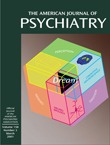Does Pharmaceutical Research Prevail?
To the Editor: In her editorial (1), Marcia Angell, M.D., editor of the New England Journal of Medicine, raised a poignant question: “Is academic medicine for sale?” Many attendees of the APA annual meeting have questioned if APA has been for sale, too. One of the arguments in this debate has been the perceived overwhelming majority of presentations during the APA annual meeting that focus on pharmaceutical research or simply on medications.
To address this issue, I analyzed the contents of the 2000 Annual Meeting New Research Program and Abstracts(2), with a focus on medications versus nonmedications (including ECT, light therapy, and transcranial magnetic stimulation). There were originally 739 abstracts, but two presentations were withdrawn. Therefore, 737 abstracts were analyzed (214 in the “Young Investigators” category). In my content analysis, 313 presentations focused on various medications, and 424 focused on other aspects of psychiatric research. Statistical analysis revealed interesting trends: 231 abstracts written by U.S. presenters (based on the first author’s affiliation) focused on medications and 270 on other aspects of psychiatry; 82 abstracts written by international presenters focused on medications and 154 on other aspects of psychiatry (χ2=8.48, df=1, p=0.04). There was a significant difference between those not in the Young Investigators category (senior investigators): 190 medication-focused abstracts versus 173 nonmedication-focused abstracts among U.S. presenters and 62 versus 98 abstracts, respectively, among international presenters (χ2=8.22, df=1, p=0.04). The difference among Young Investigators was not significant (41 medication-focused abstracts versus 97 nonmedication-focused abstracts among U.S. presenters and 20 versus 56 among international presenters; χ2=0.28, df=1, n.s.). The difference between all Young Investigators (medication-focused: 61, nonmedication-focused: 153) and all senior investigators (252 and 271, respectively) was significant (χ2=24.07, df=1, p<0.001). This difference was accounted for mostly by the difference between young and senior U.S. presenters (χ2=20.61, df=1, p<0.001) because the difference between young and senior international presenters (χ2=3.52, df=1, p=0.06) was marginal.
My observation is limited by the subjectivity of the content analysis and by the fact that the analysis was performed only on the new research abstracts and presentations at one meeting. My analysis also could not discern the influence of pharmaceutical companies, because the disclosure of financial ties is not required for abstracts. About 42% of U.S. and 53% of international new research presentations focused on medications. It is of interest that especially among the U.S. presenters, there were more medication-related presentations among senior investigators. This raises the possibility that as one advances in his or her career, the influence of pharmaceutical companies becomes greater. Further studies of this trend could be of interest. I also believe that abstracts presented at the APA annual meeting should include the disclosure of financial ties.
I would like to disclose two facts: I have had financial interests or other affiliations with various pharmaceutical companies; however, none of them supported the writing of this letter. Furthermore, I have been a member of the APA Scientific Program Committee and blindly rated all submitted new research abstracts.
1. Angell M: Is academic medicine for sale? N Engl J Med 2000; 342:1516–1518Google Scholar
2. American Psychiatric Association:2000 Annual Meeting New Research Program and Abstracts. Washington, DC, APA, 2000, pp 1–272Google Scholar



